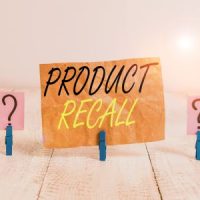How Government Recalls Work

Usually when a product is recalled, it makes the news. People are often made aware of the fact there is a dangerous product in their home. But you may be surprised to learn that recalls are not as organized as you may think, and there is often confusion over when a recall should be issued, and when it should not be.
No One Location to Find Recalls
You can certainly just do a news search to see if a particular product has been recalled. But there is no one clearinghouse, no single government website that just lists all the products that have been recalled. And that’s because there is no one government agency that is charged with the ability or duty to recall defective products.
No One Remedy for Recalls
There isn’t even one unified remedy for recalls. For example, in some cases, a product must be brought into a store or shop, to make the product less dangerous, such as the situation when a car needs an update, or there is a malfunction in the car.
Other times, the recall will request that consumers bring the defective product back for a refund or a credit. Other times, such as with defective drugs, the instruction is for consumers just to destroy or not use the dangerous product.
Lots of Agencies are Involved
Individual government agencies are charged with issuing recalls, on the products that they have oversight over. That can lead to confusion, because a single product can have multiple government agencies with oversight duties.
For example, meat is generally regulated by the Department of Agriculture (USDA). But non-meat food products are generally regulated by the food and drug administration (FDA). Drugs are regulated by the FDA, but over the counter supplements are not.
Sometimes, the product is defective but often a recall has nothing to do with the product itself, but rather has to do with the labeling or packaging on the product. For example, a drug itself may be just fine, and it may work the way it is intended to work, However. If the packaging is misleading, incomplete, or not labeled fully or properly, there can still be a recall that is issued.
Some agencies issue recalls by classification systems. The USDA, for example, ranks its recalls by the level of risk that the defect presents to the general public. Other government agencies may not do this.
No Enforcement
Making all of this even more difficult is that even if the government issues a recall it often can’t enforce the recall. The government can’t force anybody to take any product off the market, or to fix any product—although most companies will comply with a government recall, for fear of lawsuits if they don’t act on the recall.
Call the Knoxville personal injury lawyers at Fox Willis Burnette, PLLC, today for help if you are injured by a malfunctioning or defective product.
Resources:
wesh.com/article/recall-hyundai-kia-engire-fire-risk/39015866
fsis.usda.gov/recalls











